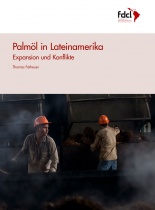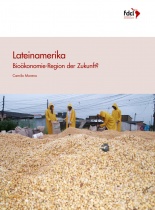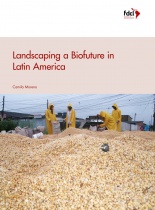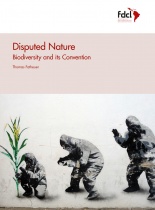| 31.12.2016 |
| Agroenergie, Klima/Biodiversität, Landnahme, Landwirtschaft |
Palmöl in Lateinamerika
Expansion und Konflikte

Wem gehört das Land und wie wird es genutzt – das ist eine Grundfrage gesellschaftlicher Entwicklung. Gerade in Lateinamerika stand die „Landfrage“ oft im Mittelpunkt der politischen Debatten. Wenig produktive Latifundien auf der einen Seite und der Kampf von Kleinbauern und Kleinbäuerinnen um das Land auf der anderen Seite prägten die Wahrnehmung des Kontinents. Und trotz aller Urbanisierung gilt auch heute noch Via Campesina als die wichtigste soziale Bewegung des Kontinents.




